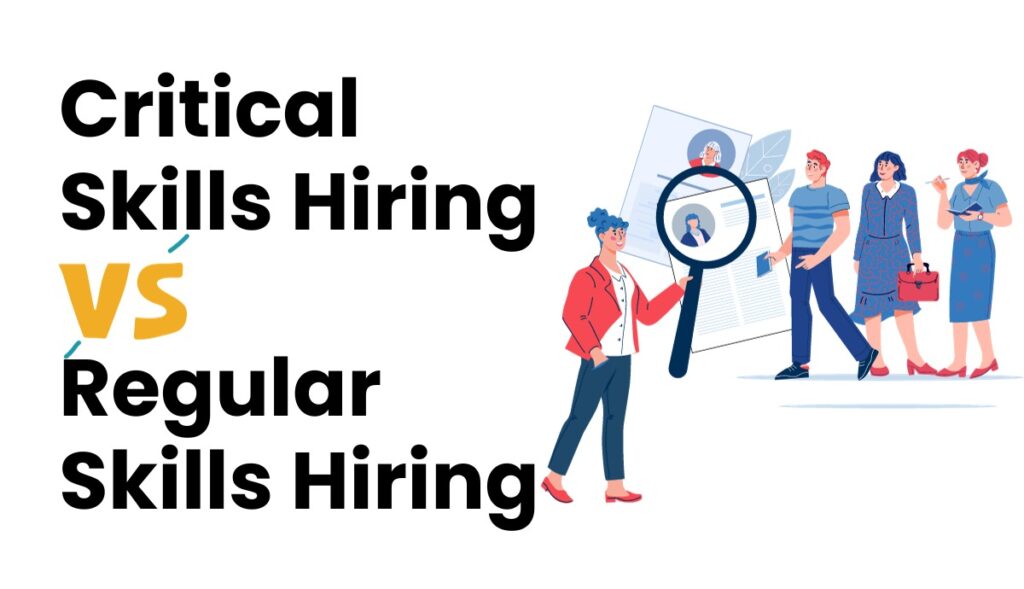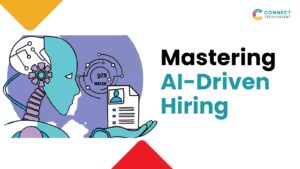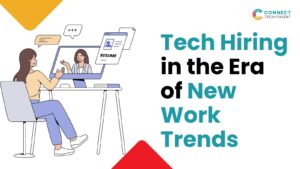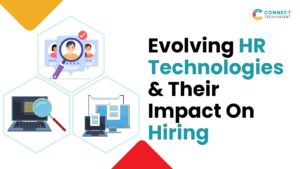Distinguishing between critical skill hiring and regular skill hiring is more than just understanding two different recruitment terminologies. It’s about recognizing the nuances in focus, approach, and criteria that each process emphasizes when selecting the perfect candidate. While both are integral to an organization’s talent acquisition strategy, the choice between them is often influenced by the job’s specific demands, the industry’s landscape, and the overarching objectives of the company. Let’s delve deeper into these two distinct hiring paradigms and uncover the pivotal differences that set them apart.
1. Skill Requirement
A. Critical Skill Hiring:
- Specialization: Critical skill hiring, often facilitated by a specialized hiring agency, zeroes in on roles that demand unique skills specific to certain industries or job functions.
- Importance to Organization: The skills sought in critical skill hiring are vital to the organization’s overall success. They might be pivotal in achieving strategic goals, maintaining a competitive edge, or ensuring compliance with industry regulations.
- Scarcity: Due to the specialized nature of these skills, they are typically rare. This rarity often leads to a high demand for professionals possessing these skills, making the hiring process more competitive and challenging.
B. Regular Skill Hiring:
- Generalization: Regular skill hiring caters to roles that demand skills and qualifications that are more widespread. These skills might be foundational to many job roles across various industries.
- Role in Organization: While these positions are crucial for the day-to-day operations of an organization, they might not be at the forefront of strategic initiatives or specialized projects.
- Availability: Since the skills required for these positions are more common, there’s a larger pool of potential candidates. This often means that the hiring process can be less competitive compared to critical skill hiring.
2. Talent Pool
A. Critical Skill Hiring:
- Limited Availability: The talent pool for critical skill hiring is often narrow. Given the specialized nature of the skills or qualifications required, only a select group of candidates fit the bill.
- Extensive Search: Companies often find themselves investing significant time and resources in scouting for the right talent. This might involve headhunting, engaging with niche recruitment agencies, or even looking beyond geographical boundaries to find the perfect match.
B. Regular Skill Hiring:
- Abundant Choices: The talent pool for regular skill hiring is considerably broader. The skills required for these roles are more common, ensuring a more extensive range of candidates to choose from.
- Easier Access: With a larger talent pool, companies, often in collaboration with recruiting firms, can find suitable candidates more quickly and efficiently. Standard recruitment channels, job boards, and local networks usually suffice to fill these positions.
3. Recruitment Approach
A. Critical Skill Hiring:
- Targeted Strategies: Given the niche requirements, especially in areas like IT staff augmentation, companies often employ specialized recruitment tactics. This might include:
- Headhunting: Directly approaching individuals who are recognized leaders or experts in their field.
- Industry Partnerships: Collaborating with industry-specific organizations or associations can provide access to a network of professionals with the desired skills.
- Competitive Offers: To lure top talent, companies might present attractive compensation packages, benefits, or unique opportunities that set them apart from competitors.
B. Regular Skill Hiring:
- Conventional Methods: The recruitment for regular skill positions tends to follow more traditional pathways:
- Job Boards: Posting vacancies on popular job boards or company websites to reach a broad audience.
- Standard Interviews: Employing traditional interview processes, which might include phone screenings, face-to-face interviews, and assessment tests.
- Diverse Candidate Pool: Given the more general skill set required, recruiters can consider a broader spectrum of candidates, increasing the chances of finding a suitable match.
4. Screening and Selection
A. Critical Skill Hiring:
- Rigorous Assessment: The screening for critical skill positions is notably meticulous. Key elements of this process include:
- Skill Evaluation: A deep dive into candidates’ specific skills, ensuring they align with the unique demands of the position.
- Certifications & Experience: Verifying relevant certifications and analyzing the depth of experience in the required domain.
- Technical Assessments: Candidates often undergo technical tests or simulations to gauge their proficiency in real-world scenarios.
- In-depth Interviews: These interviews delve into the nuances of the role, ensuring the candidate’s expertise aligns with the organization’s needs.
B. Regular Skill Hiring:
- Holistic Approach: The screening for regular skill positions adopts a more comprehensive view:
- Cultural Fit: Evaluating if candidates align with the company’s values, mission, and work environment.
- General Competencies: Assessing foundational skills and knowledge relevant to the role.
- Soft Skills: Emphasis on interpersonal skills, adaptability, communication, and other non-technical attributes that contribute to a harmonious work environment.
5. Compensation and Benefits
A. Critical Skill Hiring:
- Premium Packages: Recognizing the rarity and value of critical skills, especially in areas like contract staffing, companies are inclined to offer:
- Higher Salaries: To reflect the specialized nature of the role and the scarcity of the skill set.
- Bonuses: Performance-based or signing bonuses can be used as additional incentives.
- Enhanced Benefits: This could include extended health benefits, stock options, or unique perks tailored to the needs and preferences of the specialized talent pool.
B. Regular Skill Hiring:
- Standardized Offers: For positions requiring more general skills:
- Industry-Aligned Compensation: Salaries and benefits typically mirror industry standards and benchmarks.
- Standard Benefits: These might encompass the usual health benefits, retirement plans, and other common perks offered across similar roles in the industry.
6. Timeframe
A. Critical Skill Hiring:
- Extended Duration: The journey to secure candidates with critical skills can be lengthy due to:
- Specialized Search: Given the niche requirements, identifying the right candidates might take longer.
- Negotiation Period: With competitive offers on the table, there might be extended discussions on compensation, roles, and responsibilities.
- Thorough Vetting: The need for rigorous assessments and in-depth interviews further extends the hiring timeline.
B. Regular Skill Hiring:
- Swift Process: The timeline for hiring regular skill positions tends to be more condensed:
- Abundant Talent Pool: With a larger pool of potential candidates, initial screening can be expedited.
- Simplified Procedures: Traditional interview processes and standard compensation packages can streamline negotiations and decision-making.
Conclusion
The distinction between critical skill and regular skill hiring is not just a matter of semantics but represents two fundamentally different recruitment strategies. Each caters to unique organizational needs and demands a tailored approach. As businesses, especially those in the tech sector, continue to grow and adapt, recognizing these differences and the importance of Top IT skills will be instrumental in building robust, dynamic, and successful teams. Whether it’s securing a rare expert in a niche field or filling essential operational roles, understanding and optimizing these processes will pave the way for organizational success.




